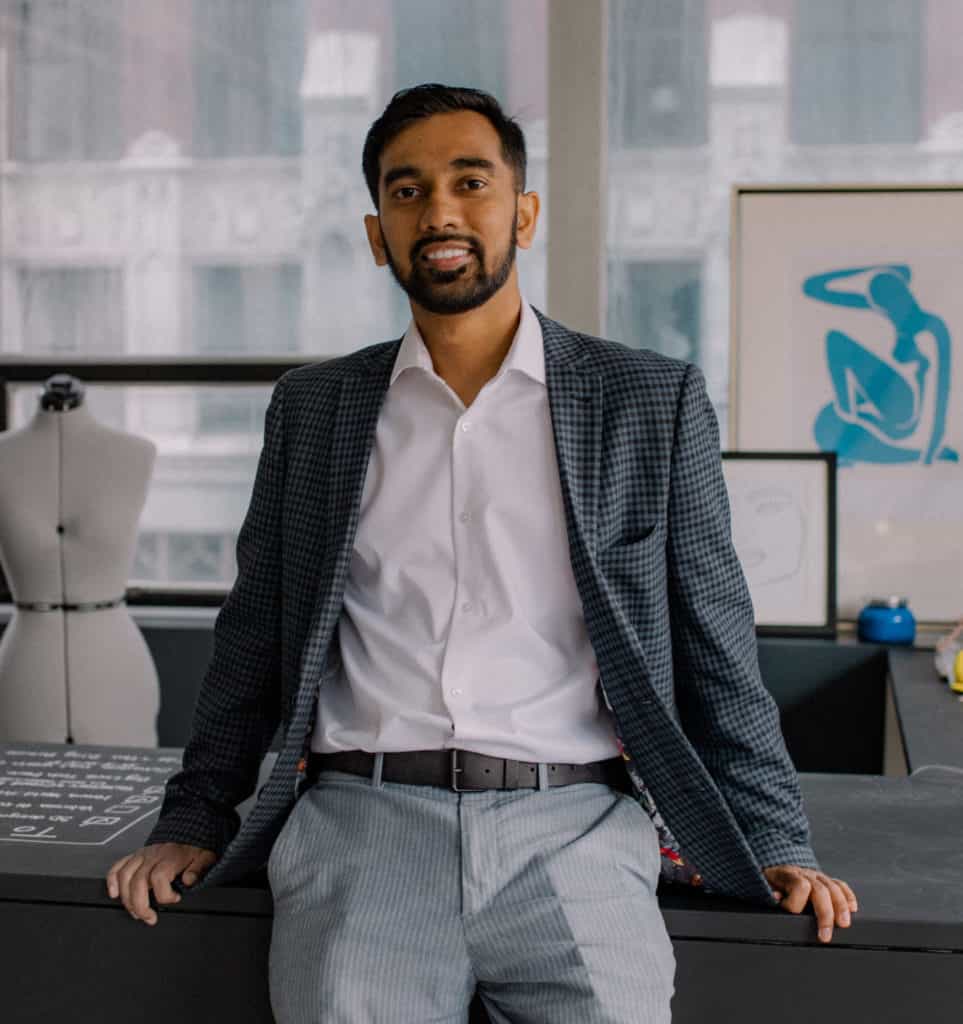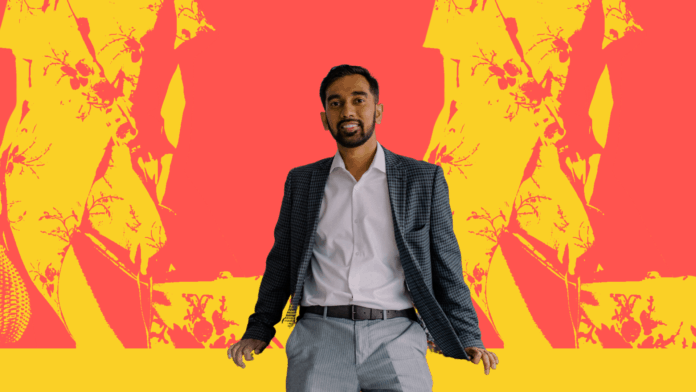A Slice on Russel Karim, Founder and CEO of Dhakai
Russel Karim became an entrepreneur during college and never looked back. He noticed there wasn’t an existing platform for communication at his university, so he (nonchalantly) built an app, wrote a contract, sent it over to them and they implemented it. From there, he founded 4axiz, developing applications for companies; FanFood, an app managing and delivering concession orders; Food Runner, a food delivery app similar to Uber Eats but created for smaller midwest towns like his home in Iowa. Karim ran Food Runner for two years, from 2017 to 2019, by bootstrapping it to 50 team members until it was acquired by EatStreet.
Three startups into his entrepreneurial journey, Karim is now tackling the fashion industry. Though he grew up in Iowa, Karim was born in Bangladesh, the second-largest clothing exporter in the world. His family is involved in the manufacturing side, so he was exposed to the deep-rooted issues in the fashion industry from an early age. “Coming to the U.S., it was difficult for me to buy clothing because I knew how little money would trickle down to the factory. I’m paying hundreds of dollars for clothing, versus the factories in Bangladesh that are getting less than $5 for the same clothing items.” With a desire to change this system, Karim founded Dhakai in 2020.
Before developing the platform, Karim did a deep dive into market research, trying to fully understand who the customer would be and how to add value. After the customer discovery process, Karim came back with three main findings. “Number one, a lot of smaller brands wanted to work with a factory but wouldn’t meet the minimum order quantity. Second, communication with foreign manufacturers was a problem for them. The third was transparency [into the whole supply chain].” Ultimately, he found that smaller brands just don’t have the resources or access to information as larger brands, and created a platform to help solve those issues.
By cutting out the middlemen and “taking brands directly to verified factories”, Dhakai is able to help both manufacturers and brands profit more off of each sale, “Just by cutting out the middlemen, we’re able to save at least 30% of the cost for our brands.” Additionally, increasing transparency in the supply chain aligns with the way newer generations want to buy clothes. “The next generation of Gen Z and Millennials aren’t buying clothing because of just the product, they’re buying a story, how they can connect to the roots. With Dhakai, we’re really bringing brands back to the roots of where the clothing is produced.”
With an idea for a product, Karim went into the TechStars accelerator program. Through this, he was able to gain many connections and launch the product. Now, they work with over 550 manufacturers and 110 brands. That hasn’t come without setbacks, however, as COVID-19 wreaked havoc on many countries heavily involved in the supply chain, especially clothing manufacturing. “I think that’s one of the things we’re learning, and that’s why a platform like Dhakai, which enables brands to source without the travel, is going to be more prevalent and more helpful moving forward.”
From his own entrepreneurial journey, Karim emphasizes the importance of market research. “Learning about your customers and the audience and taking a deep dive into the problem are key to building a successful company.” He notes that it can be easy for entrepreneurs to get overly excited about their idea and don’t think realistically, “We [entrepreneurs] have to invest in the idea, but we also have to invest in the viability of the business.” Doing intensive market research before building a product is Karim’s approach to avoiding over-excitement. From his experience with TechStars, Karim found out how important it is to ask for help, and doesn’t believe he would have gotten as much out of the experience if he hadn’t “leaned into” help from his mentors.
Ultimately, Karim finds success as an entrepreneur by creating jobs for his community. “Very early on I kind of put this in my brain that I wanted to build businesses to create 1,000 jobs in my lifetime.” Dhakai is his passion project, so he looks to continue growing it and addressing the big issues he sees in the fashion industry. Way down the line (he sees this as a long-term project), Karim hopes to sell Dhakai or take it public in order to increase the impact it can have on the industry. While he has these lofty goals for himself, Karim is also investing in his own health by trying to find a good work-life balance, something he believes many entrepreneurs and business people can lose sight of.
Founder Bio

Russel Karim is a serial entrepreneur originally from Bangladesh, now based in Cedar Falls, Iowa. He started his entrepreneurial journey in college founding 4axiz, then went on to found FanFood and Food Runner before his current venture, Dhakai. Connect with Karim on LinkedIn.

